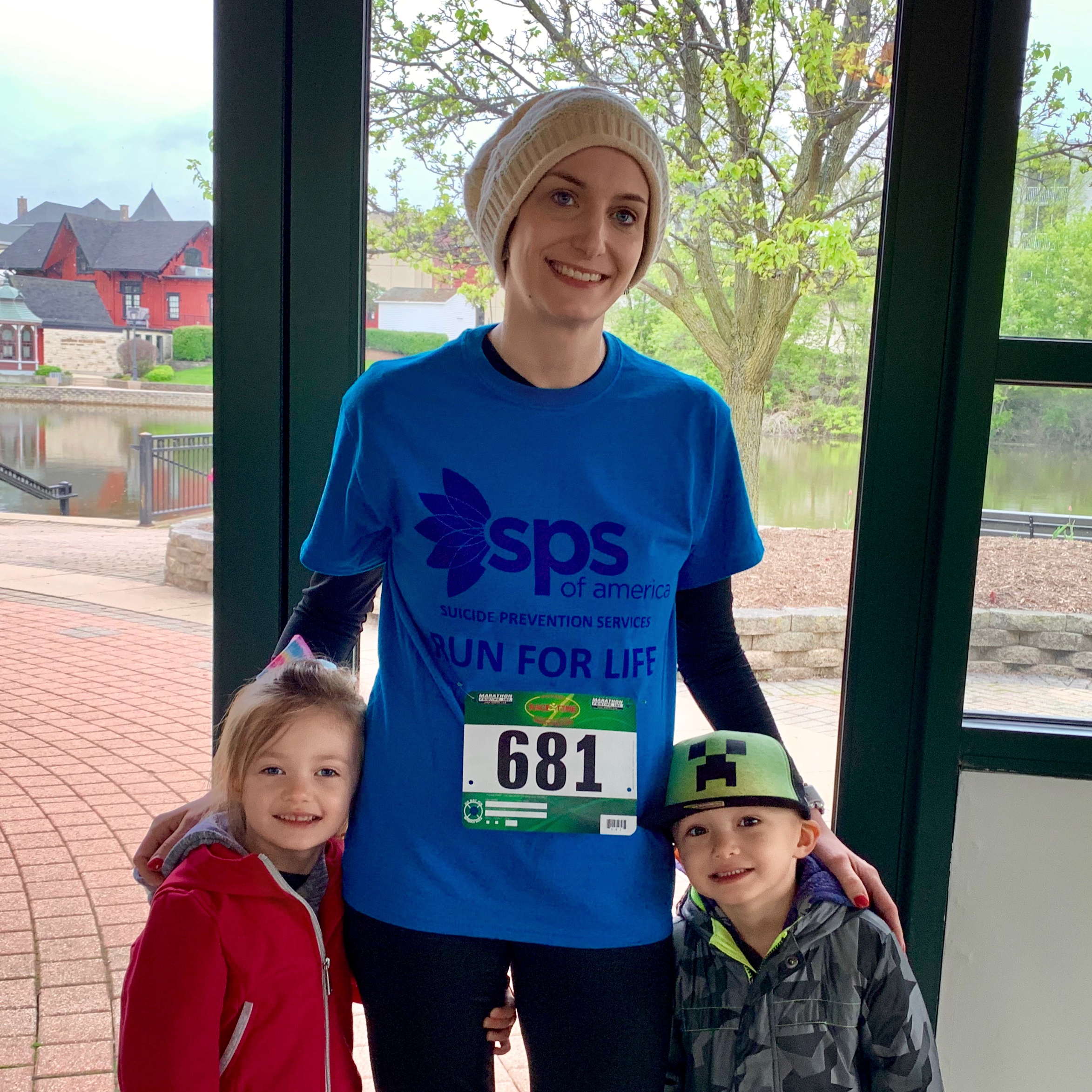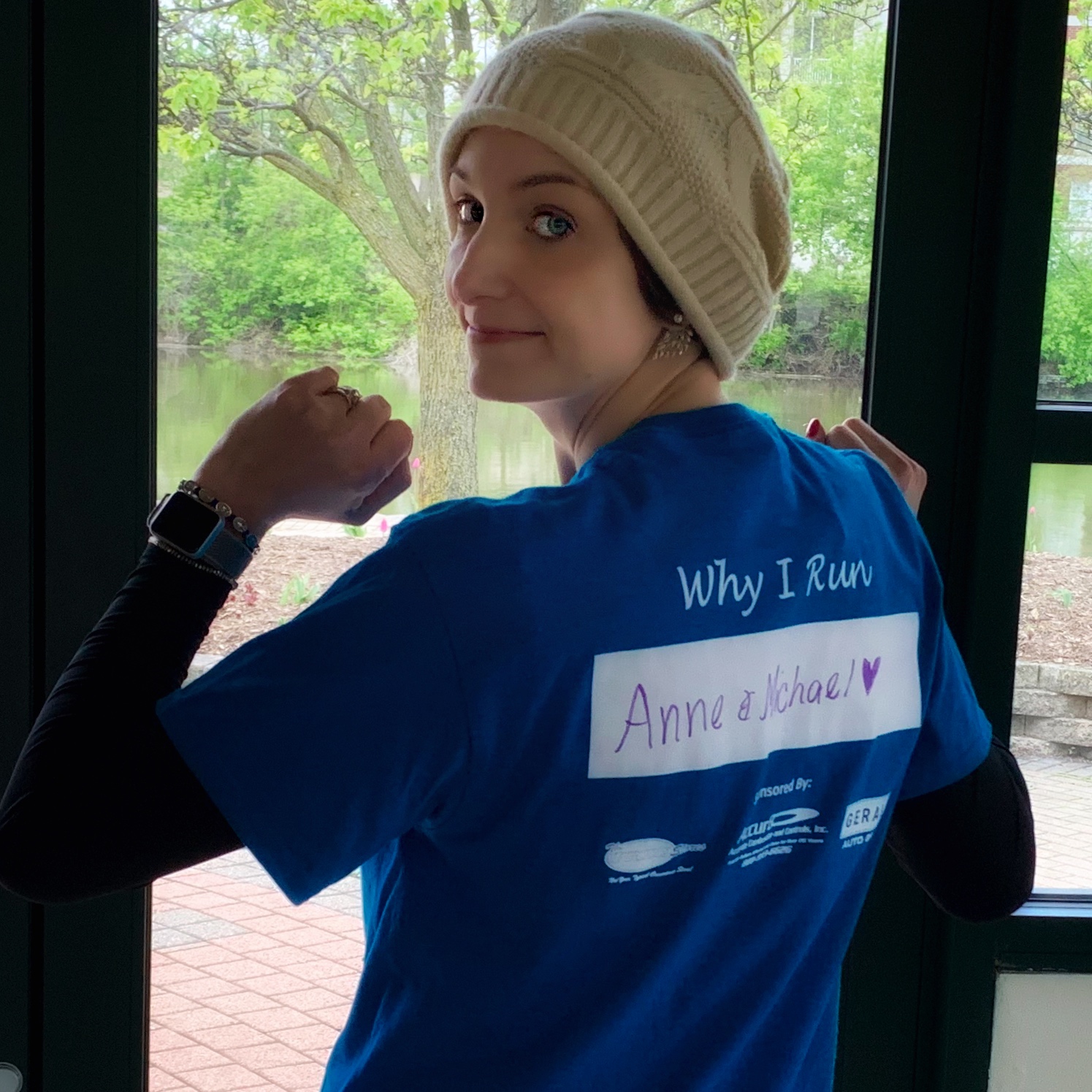It is said that every loss is a form of death. In every instance, where there once was something; an idea, experience or person that brought your life meaning and now it no longer exists. Inevitably, coping with loss always involves the same dynamics. Whether you are dealing with the loss of a friendship, job, pet or loved one, we are forced to reconcile with the fact that we will never experience something or someone again. But where there is a loss, I believe there is also the opportunity to rebuild and perhaps even strengthen what once was.
When you’re dealing with cancer or a significant loss in any form, I believe you lose bits and parts of yourself over and over. With cancer, there is the loss of your appearance, the physical sense of who you once were is stripped away little by little, or at times seemingly all at once.
It starts with the three words you have dreaded hearing your entire life, “You have cancer,” and it doesn’t stop. It’s a slow cascade of loss starting with the loss of your current plans, followed by your hair, and for many the ability to work, become a parent, sleep comfortably or move without pain.
But as bits and parts of you get stripped away, I believe there is the opportunity to rebuild what once was into something stronger; a version 2.0 of yourself. Just as scar tissue is stronger than regular tissue in a biological sense, I believe so too is the potential for your body and your psyche to transform for the better during these times.
It starts with the realization that you are strong, and you can handle way more than you ever have imagined. Things will get better. Although, it doesn’t feel like it. It’s not easy, but it gets easier.
Still, sudden loss in any form has a way of ripping you open, making you emotionally raw. Even when you have been carrying on successfully, many years later, a thought or a memory has a way of bringing you to your knees. It’s been 17 years since I lost my loved one to suicide, yet a memory of us has the ability to still make me weep nearly two decades later.
I believe a lot of this pain stems from the realization that we will never see our loved one again in this life, no matter what we do. The word “never” itself is a difficult concept to bear. “Never” hurts because it means that it can’t be changed. While change can be scary, within it lies opportunity. We as humans at some level like the idea of change because it means it’s not permanent, there still exists a possibility. This makes us feel good deep down. However, true loss in a sense means it’s over. It’s gone. You can’t bring a dead person back to life. You can’t redo a past mistake or unsay the words that destroyed a relationship. For when it’s gone, it’s gone, and it will never be the same no matter what you do. In a psychological sense, this destroys a small piece of you. A piece that you must learn to rebuild.
When we lose a relationship, for instance, it’s meaning is stripped away from our lives. Suddenly, something that created so much meaning and purpose in our life no longer exists. As a result, we tend to feel a sense of emptiness where the meaning used to reside. We begin to question ourselves, wondering if we made the right decisions. Sometimes, our questioning turns existential. We begin to wonder if life is actually meaningful at all. This lack of meaning is commonly known as depression. While depression and sadness typically occur together, they are not the same.
Sadness occurs when something feels bad. Depression occurs when something feels meaningless. The difference is when something feels bad, it still has meaning. When you’re depressed, everything becomes a big empty void. The deeper the depression, the deeper the pointlessness of any action becomes, to the point one starts to struggle to get out of bed, shower, eat and even speak to people.
Depression has many faces and moods. It never looks the same. It's also not always obvious. Sometimes it's very visible, and many times it goes unnoticed. It is an illness that can affect anyone, and prescriptions for antidepressants are soaring, yet depression is still badly misunderstood.
Depression does not discriminate. Men, women, rich, poor, white, black. No one is immune. It is not just an illness for people with dark, mysterious pasts or chaotic presents. It is everywhere. It’s your sister, your coworker, your brother, your, wife, your cousin, your mother and the barista at your morning coffee stop. Depression is omnipresent but is still often talked about in hushed whispers, due to the stigma that surrounds mental health.
In recent years, the tragic deaths of Robin Williams, Chris Cornell, Chester Bennington, Kate Spade and now Anthony Bourdain are helping to shine a light on the severity of depression and the reality of suicide. Many people wonder, how could this happen?
From the outside looking in, they appeared to have all the trappings for success which should bring happiness and meaning, yet they still chose to end their lives. But why? I believe the following metaphor sums this up so eloquently.








